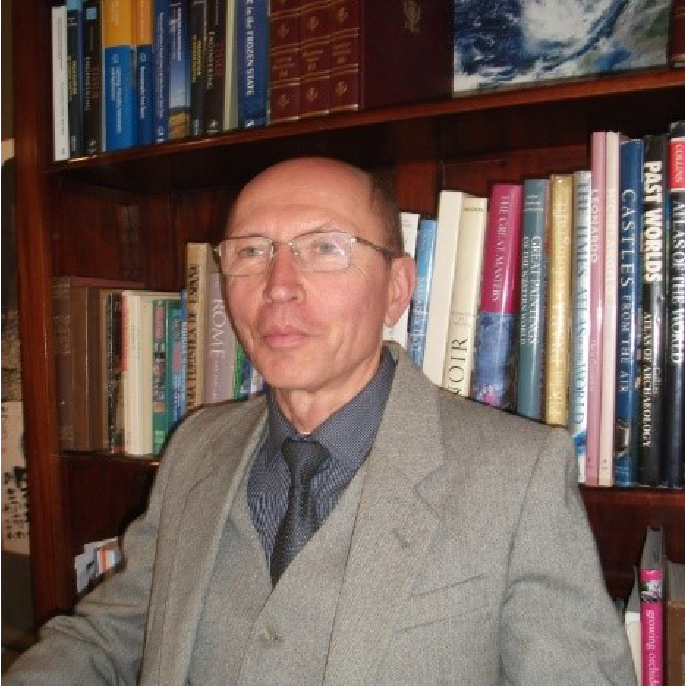
AOGS Honorary Member

2020 AOGS Honorary Member
Yuriy KULESHOV
Australian Bureau of Meteorology
Professor Yuriy Kuleshov, Science Leader at the Bureau of Meteorology is the first Australian scientist elected as Honorary Member of the Asia-Oceania Geosciences Society (AOGS).
Professor Kuleshov is a world leading expert in satellite remote sensing and climatology, and his contribution to excellence in geoscience and cooperation in Asia-Oceania is internationally recognised. For two decades, Professor Kuleshov serves on various committees, task teams and expert teams of the World Meteorological Organization (WMO) – a specialised agency of the United Nations for weather, climate, water and environment, strengthening cooperation of academic, research and operational organizations around the world, and particularly in Asia-Oceania.
One of the most recent WMO flagship initiatives is the Space-based Weather and Climate Extremes Monitoring (SWCEM). From the inception of this WMO initiative in 2017, Professor Kuleshov led broad international cooperation of countries in the Asia-Pacific Region on the SWCEM. As a Chairman of the Steering Group of the SWCEM for South-East Asia and Western Pacific, he guides strategic evolution of this initiative, its implementation in countries of Asia-Oceania, and expansion of the initiative to countries in Africa and South America.
Climate variability and change, and especially climate extremes, have dramatic impact on society, particularly on least developed countries (LDCs) and small island developing states (SIDS). Since 2010, Professor Kuleshov was instrumental in implementing numerous projects of the Climate Risk and Early Warning Systems (CREWS) International Initiative and the International Climate Change Adaptation Initiative (ICCAI) assisting LDCs and SIDS in Asia-Pacific with risk-based decision making in climate change adaptation.
In 1999 Professor Kuleshov established the "Climate Change and Southern Hemisphere Tropical Cyclones" International Initiative - a cooperation of operational, academic and research organizations from countries in Asia-Oceania, and is leading this highly successful pioneering research on tropical cyclones in the South Indian and the South Pacific Oceans for more than two decades.
Professor Kuleshov is a co-founder of the SPACE (Satellite Positioning for Atmosphere, Climate and Environment) Research Centre established at the Royal Melbourne Institute of Technology (RMIT) University in 2010. He provides the SPACE Research Centre with forward-looking strategic advice on research for developing new space and geospatial technologies.
Working at the Department of Satellite Remote Sensing of the Environment, Academy of Sciences, the USSR, Professor Kuleshov designed the world first operational space-based microwave radar of Cosmos-1500/Ocean satellite series, and led large-scale national and international field programs investigating characteristics of Arctic and Antarctic sea-ice, glaciers, tropical cyclones and terrestrial environment from aircraft-laboratory and satellites. For outstanding achievements in developing satellite remote sensing instruments and methods for Earth observations he was awarded with the USSR Government Prize in the Field of Science and Technology (1985).
Results of Professor Kuleshov's research have been published in more than 100 books, book chapters and peer-reviewed publications in scientific journals, and presented in more than 200 conference papers. Two Australian Standards, “Lightning Protection” and “Wind Actions”, have been prepared with significant input based on his research.
Professor Kuleshov is a dedicated member of the AOGS actively participating it the Society's activities from 2004, presenting at annual meetings and promoting international scientific cooperation. From the 2009 AOGS meeting, he organises an annual session on "Climate Change and Tropical Climatic Hazards in Asia-Oceania". This annual session provides excellent opportunity for participants from academic and research organizations, operational meteorological services and disaster risk management offices to meet on a regular basis, exchange experience in translating research on climate change vulnerability, impacts and adaptation to practical applications, and establish further collaboration.
